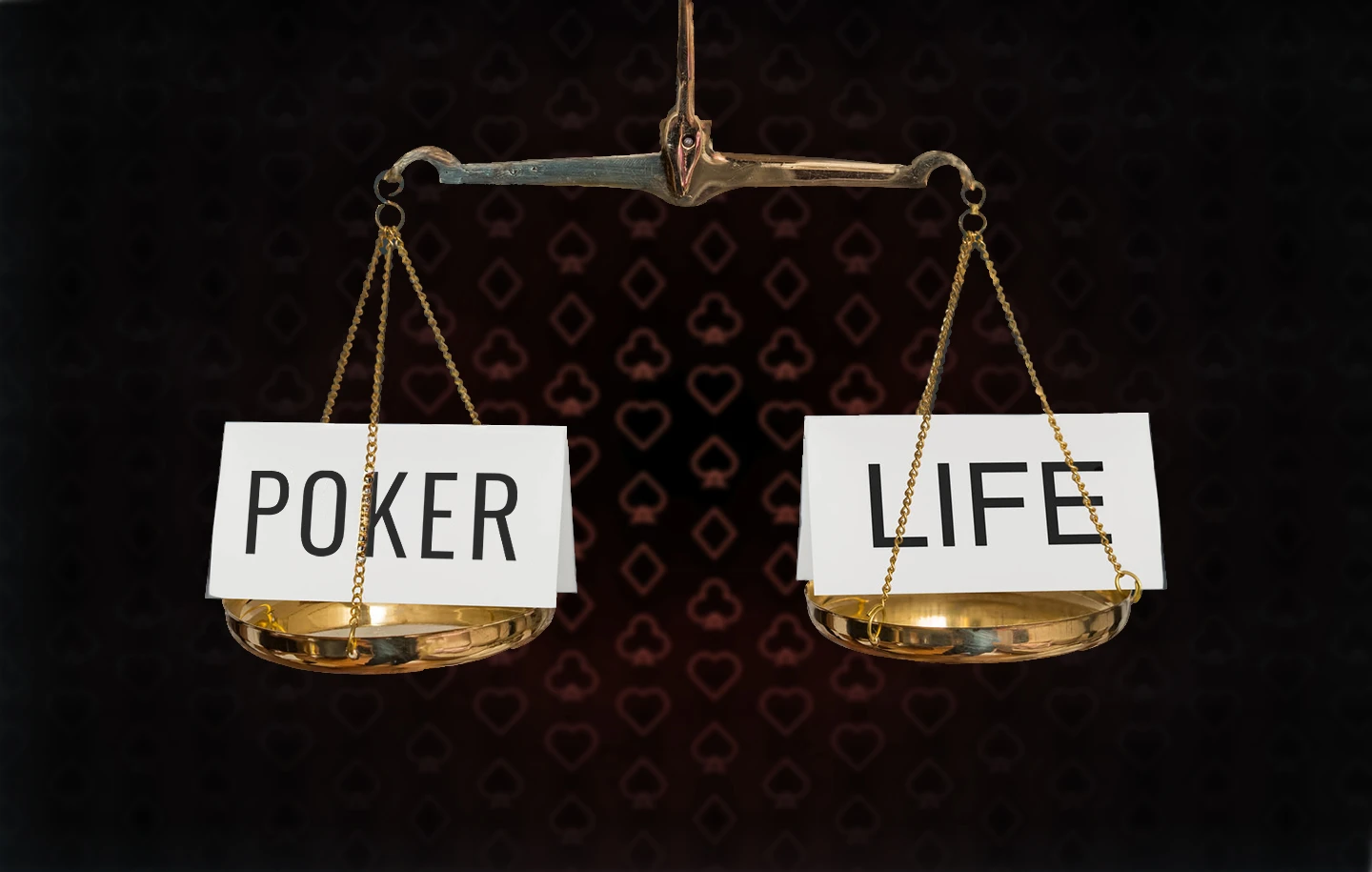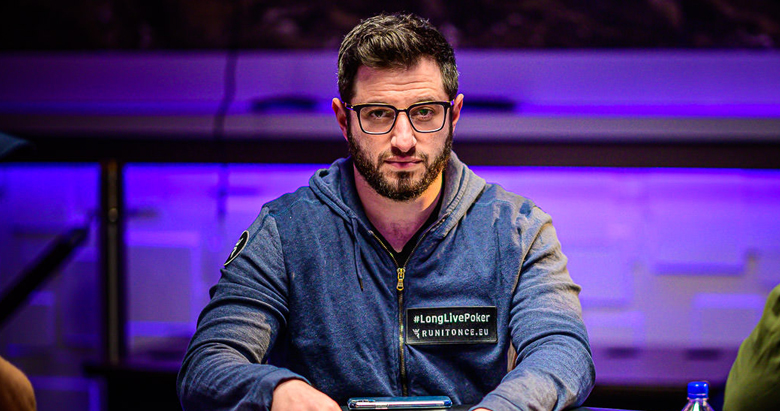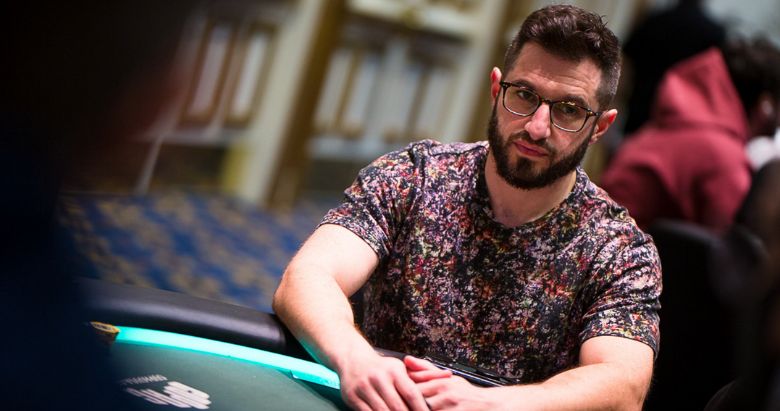Poker Grind vs Life: Are They Compatible for Poker Players?

- Fact Checked by: PokerListings
- Last updated on: April 19, 2025 · 7 minutes to read
In the first third of the 21st century, poker seemed like a risky but independent way to make a living. However, it never was an easy path and likely never will be, given the dynamics of AI technology development.
The further the evolution goes, the more time poker demands from professional players to provide them with enough money for a decent life. With that in mind, more and more players stand up against the work-life balance mantra and try to show newcomers how tricky believing in it can be in poker. But why? The answer to this and other related questions PokerListings tries to give you in this article.
Does Universal Poker Work-Life Balance Exist?
It depends on how you define “balance.”
If you see balance as an absolute equality of time spent, effort, and quality of life — then the answer in normal circumstances is “no” for amateur poker players and fresh professional players, “maybe” for experienced players, and “yes” for high-stakes crushers.
If you see balance as a state of life and work stability, or as proportional equality of parameters, then the answer can be “yes” for every type of player.
Balance here isn’t quite a steady term — the meaning behind it is highly versatile depending on who you are, what exactly you want right now, what you are planning for the near future, how often your plans change, how healthy you are, what’s going on in your life and family, etc.
As Phil Galfond describes this balance paradigm for poker players in his “anti-balancing” manifesto:
The right ‘balance’ for a 21-year-old, up-and-coming poker pro is different from the right balance for a 45-year-old accountant with a wife and three kids. The right ‘balance’ can be different from one year to the next, or even one month to the next, based on what you want to take on and what your life and career are demanding of you.
Let’s say you are a fresh poker pro. If you aren’t exceptionally lucky on your poker journey, the ratio between playing poker and gaining money from it will, for the most part, be tilted towards grind because you need to put in volume to accumulate experience. It shifts priorities and reduces the free time you could spend with significant others, on your health, or on hobbies.
So, this situation is unbalanced in terms of equality by default.
And if you want to make a decent living from poker, you should reach an ABI or stakes with an ROI suitable for your quality of life expectations. People very rarely come to the game and start immediately crushing; most of us have to work hard to reach the required level of the game where we can shift the scales at least a little toward life instead of the grind.

But maybe you are experienced and a solid poker pro who just wants to earn more money. In this case, you should play and study as often and as effectively as possible to build up your bankroll and develop the necessary skills to help yourself later play well at higher ABI or stakes. This means you may spend more time and money on the game for a period before getting a foothold at the required level, freeing up enough time to focus again on yourself and your family.
By the way, it is always worth noting that a lot of players never climb up or even stay at the same level, no matter how hard they grind, study, and sacrifice their life for a chance at poker success. A good chunk of the field just burns money and even ends their career due to variance volatility, general fatigue, and the discrepancy between stress and results, and so on.
How to Balance Poker Grind and Life?
Phil Galfond suggests that instead of balancing grind and life, you should try to harmonize them:
The work-life harmony means that the different areas of your life work well with each other. You may focus much more on specific areas at certain times, but you do so in an intentional way that aligns with your values and allows you to still tend to the deprioritized areas. It involves sustainability — creating routines, habits, and systems that prevent burnout and support long-term wellbeing.
Firstly, you should conceptually acknowledge that the hours you spend on something do not have the same quality:
“The eighth hour of your poker session is not going to be as focused as your first. Your fourth hour of study isn’t going to be as impactful as your second.
Perhaps more importantly, split focus is a great way to damage all of the hours you have in your day.
Optimizing your schedule to get the most out of the hours you have, in all areas of your life, is a way to find time where there isn’t any. A quality hour is worth three low-quality hours in most cases.”
So, study your priorities and adjust your schedule daily to follow them more effectively in every area of your life.

Secondly, you should manage your energy wisely to be the best version of yourself in each situation:
“I’ll speak from my own experience. If I work a 10-hour day, hopping from call to call and from task to task with no real breaks, other than quick bathroom trips or scarfing down a protein bar, and then leave my office to join my family when the agreed-upon work time is over…
They aren’t getting the best version of me. I collapse onto the couch. My son wants to play with me, and I try to talk him into watching TV. There’s a chore to do, and I sit there and let my wife do it.
My energy is gone. Not only my physical energy, which is drained, but my emotional energy. I’m not even excited to be there. Even if you take away my phone and other distractions, forcing me to be present, the real me — the best me — still isn’t there.”
You can manage your energy better by following two steps:
- Identify which tasks cost you the most energy and why — and also the reverse. If possible, delegate, automate, or completely remove energy drains, even if it means sacrificing some EV in the short term.
- Solidify your daily routine from the morning with the mandatory inclusion of workouts, regular breaks every couple of hours, small warm-ups and stretches during the day, etc.
Remember that it is absolutely okay to cut ties with or reduce time spent with specific people who drain your energy enormously. There is no shame in wanting to communicate mainly with people who exchange energy with you, rather than suck it out like real vampires.
You also should know when to stop and give yourself more rest than usual if you feel the need. Adjust your routine when necessary — you shouldn’t push yourself to act energetic because you “have to” when your battery is low.
Thirdly, manage two types of expectations: your own and those of your significant others. While your own expectations are easier to control — since you can check your values and adjust them — you can’t do the same with others’ expectations. As Phil states, one of the most common challenges for poker players is finding middle ground between wanting to spend more time working and not disappointing loved ones.
There are two solutions for this situation:
- Propose a deal to your significant others. For example, Phil uses: “If I get this, it would allow me to do this. Would that work better for you too?” When you come to an agreement, it allows all parties to take each other’s opinions into account and find the best solution together.
- Discuss and set goals and the future with your loved ones. This includes your goals, their goals, personal visions of the future for each of you and together as a couple or family. Set shared goals together but also acknowledge your differences and try to find the best way to fulfill them too.
Remember that people don’t read minds and often misinterpret each other’s feelings. Use dialogue as the only tool for understanding yourself and your loved ones, and to find harmony in your relationships.
When Not to Choose Grind or Work
Some poker players use dedication to the game as a form of escapism — an excuse to self-sabotage their relationships or lifestyle away from the table.
If you notice that you would rather play poker until exhaustion than hang out with your friends and family, do house chores, go to college, or educate yourself in any other way — it may be a sign that you should stop playing poker and seek professional psychological help.
PokerListings doesn’t imply that you have mental health problems, but in these circumstances your choice may be a sign that it’s time to reconsider your current situation, life values, and priorities — as well as the quality of your relationships.
We also do not recommend grinding if you have serious issues with stress response — for example, if you lose your temper easily, struggle to recover from negative emotions, or have poor control over your behavior under pressure. Going through therapy, or at least starting to practice meditation, may be more beneficial for your happiness and overall quality of life than an extended grind in this state.
Finally, you may struggle with grinding if your physical health worsens after long sitting sessions or prolonged use of electronic devices.
You may want to consider playing variants of poker that do not require uninterrupted activity for long periods, or strictly regulating the length of your sessions to prevent deterioration of your health.
-
Stake.US Poker4.3
- Rakeback 5%
- $55 Stake Cash + 260K Gold Coins
T&Cs Apply | Play Responsibly | GambleAware
18+ | Play Responsibly | T&C Apply
-
Appeak Poker4.1
- 1,000 Chips Daily
- FREE 5,000 Chips
T&Cs Apply | Play Responsibly | GambleAware
T&Cs Apply | Play Responsibly | GambleAware
-
- 150% up to 25 SC
T&Cs Apply | Play Responsibly | GambleAware
Terms & Conditions apply
-
- 5%
- 200% Gold on 1st Purchase
T&Cs Apply | Play Responsibly | GambleAware
Terms & Conditions apply
-
- 2,500 Gold Coins + 0.50 Sweeps Coins
T&Cs Apply | Play Responsibly | GambleAware
18+ | Play Responsibly | T&C Apply
